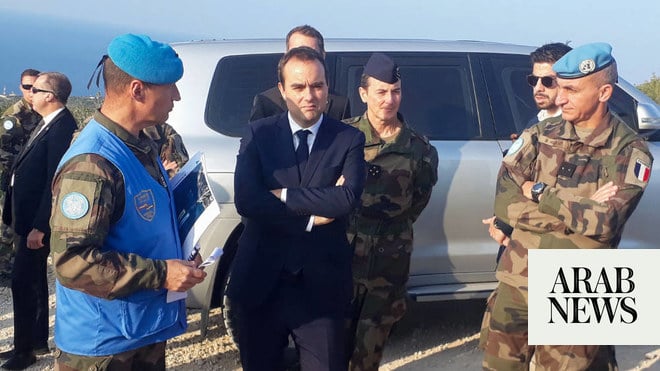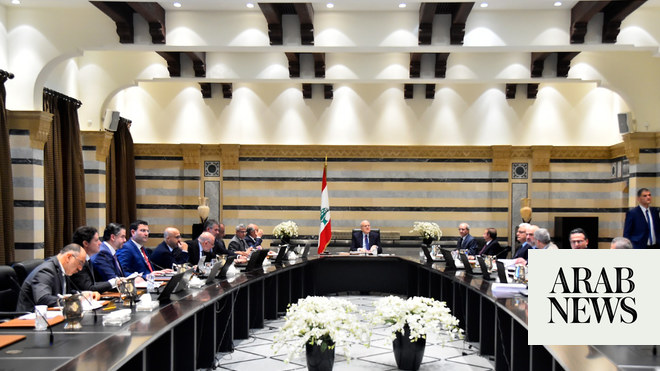
Protesters were also faced by a counter-protest, consisting of supporters of Hezbollah in Beirut and supporters of the Free Patriotic Movement in Aaqbiyeh in northern Lebanon
BEIRUT: Protesters blocking a highway linking the two sections of Beirut cried as members of the Internal Security Forces tried to force them to leave the road to make way for cars. The protesters insisted on remaining and formed a human chain, while some fainted from the intensity of the stampede.
“I have never cried in my life, now I cry. I have been here for 10 days, I left my job, I sleep on the street, I have no money. We have demands that they should realize. We do not want to leave the street. We do not want to surrender,” one protester shouted.
The decision to reopen blocked roads in emergency situations was taken on Saturday by official authorities. It followed a speech by Hezbollah leader Hassan Nasrallah in which he asked for opening the roads because “there are those who ask for people’s identity and it reminds them of the civil war.”
But protest activists, according to Mahmoud Fakih, believe that “it is a step without guarantees.”
He told Arab News: “What we are doing is leverage to pressure the government and force it to resign. Who guarantees that, if we opened the roads and the authority did not fulfill our demands, we can get people back to the street to block the roads again?
“The only non-negotiable step is the resignation of the government. We have experiences with the authority in previous protests that did not lead to any results. They insist on frightening people, and this is what happened on Friday night through Nasrallah’s words and by bringing down his supporters who challenged the protesters, even though their situation is no better than ours.”
The opening of the roads turned into a hit and run between security forces and protesters.
Protesters were also faced by a counter-protest, consisting of supporters of Hezbollah in Beirut and supporters of the Free Patriotic Movement in Aaqbiyeh in northern Lebanon. The two sides engaged in sharp arguments, and Hezbollah supporters accused the protesters of demonstrating with external support.
Everyone was waiting for the squares to be filled with the protesters as the day progressed.
When discussions in Beirut’s Riad Al-Solh and Martyrs squares did not reach agreement on forming a group to organize for the movement, Fakih said: “One discourse should prevail in the protests, and the time has not yet come to form a reference to speak on behalf of all people. However, we have committees coordinating logistical and organizational issues.”
The protesters responded to Nasrallah’s accusation that the “protest was financed by partisan and external parties” by producing a video on social media showing faces of people of all ages saying they were “financing the revolution.”
Dr. Zuhair Hatab, a sociology professor, told Arab News that he believes that “there is great confusion, and for the time being everyone is supposed to be on the side of the protesters. The grassroots in the squares are still unable to have an organizer. People need to build confidence in order to give it to an organizer and this is not yet mature.”
He opposed Nasrallah’s demand for the protesters to nominate their representatives to talk to the authority: “This is not a traditional revolution. It must go through stages. If it is stifled by the fiercest political class, the resulting vent could be hard for the country.”
Hatab added that “it would be better now to stay in the protests even if it leads to losses, because revolutions are not velvety, and the protesting voices must coincide with an insistence on positions even if it leads to repression, and then the revolution moves to a second and third step.
“To tell people to go home and talk to politicians will lead to demands being referred to the archives,” Hatab said. “It is a process of procrastination and complete fraud in order to calm the souls.
“Unless the authority gives clear signs about its seriousness, there is no hope of trusting this political group that has betrayed the dreams of youth,” Hatab said.












